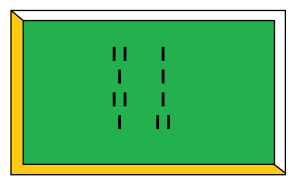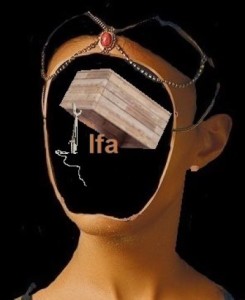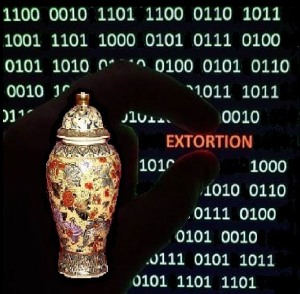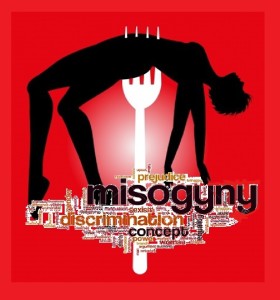American Ifa Fa Afa (501c3) –
Annual Ifa in America/USA reading for 2020 was done on Saturday,
December 21st, 2019 @ 10 a.m. in the State of Florida at Ile Akoko Ata;
for the total USA states, regions, and territories.
INTRODUCTION:
In 2020, there will be chaos between the sexes, problems between race and political parties, small and huge wars across the world, tragedy, accidents, serious sicknesses, uncontrollable food poisoning, and a lot of governmental interference in our daily lives. Every year many of us wish for riches and good health. Never do we imagine the struggles and or the injustice that will counter our ideologies of a good economy and perfect healthcare. As the currents detract and expand in 2020, people have to prepare for a rough ride and rejoice when it is time to celebrate.
Dysfunctional environments are almost guaranteed in the workplace, at the doctor offices, in the schools, and in the home. Therefore, the best gifts for the New Year are the gifts of love and peace. The best gift is the gift of empathy. The best gift to society is the gift of consideration.
THE ODU FOR 2020 BY THE IKINS DE IFA
“There no peace for a liar”
“Heaven didn’t want to do ebo”
“Eguns of the Babalawo speaks”
OBI:
Esu Baralayiki – Alaafia (everything is in alignment)
Ancestors = Alaafia ire with personal spirits with ejife
ODU:
Odu Ogunda’Fun, Odu in Osogbo (Ibi) wars continuous
“Ogunda” is expanding and life giving or life taking; while “Ofun” is detracting and rebirthing
1st odu Odi (hole)
2nd odu Ejiogbe (respect)
PRAYER: Oggunda fun wewe yeye, wewe, yeye oni rewo omo ozain kueleses kan kuelese meji obaye orunmila wewe yeni orunmila onibara niregun
Leading Orisha: Ogun
Accompanying Orisha: OrishaNla with Oshun
Supporting the Orisa(s): Iyamiis
Maferefun: Obatala, Ogun, Oshun, Iyamiis, Oya, Sango, Eguns,
Keywords: Ori, cursing, justice, gossiping, darkness, weapons, operation, dead, gambling, cheating, love and hate relationships
FLAG: The base is green with white and gold (yellow) borders 
NOTE: ONLY use palm oil for the witches and give peanut oil for the orisha and ikins
Received: Olokun and Ori; need to be initiated to Congo religion
Closing Odu: Irosun Otura (Irosu’etura; Irosu’Ajala)
- Receive Olokun
- Clean house with waters of olokun water on New Year Eve
- Take a bath with Olokun water on New Year eve
- Go to the beach if you don’t have Olokun or a godparent with Olokun to bathe. Just don’t make your own.
- Open your eyes and look at the hidden agenda.
- Merge things in our lines to bring things together.
- Lots of divorces, separation within family, children, partnerships, etc.
- Look at one’s blood. Check for diseases.
- Receive and get the right Olokun
BORN:
- Eugenics
- Wars and civil wars
- Weapons
- Embarrassment
- Entrapment
- Betrayal
- Blackmail
- Changing heads
- Cursing
- Hypocrisy
- Male against women
- Third eye
EWE IN THIS SIGN: Prodigiosa, Tamanindo, Ewe Anton, Ewe Ikoko, Ewe Shewerekuakue
ESU BORN IN THIS SIGN: Esu Ashikuelu
Proverbs:
- The general goes to war but the hunchback doesn’t lose sight of him
- Pride and concede are the loss of the persons
- Violence loses the person
- The snake doesn’t measure it’s shadow like that the rainbow
- What the earth is given, the earth returns
- You have to know how to love and then hate
- In the town was a king who was blind in one eye
EBO:
- 2 Guinea hens to Oshun
- Ochinchin to Oshun and Ogun
- 1 turtle, 2 rooster and 1 pigeon to Ogun
- 8 Yami balls with efun (cascarilla) to Obatala (OrishaNla)
- Give ten metal knives to Ogun.
- Do the prayer of “Ogunda’fun” every day.
Money: Ebo to Ogun
Health: Ebo to Ogun and Obatala
PROHIBITION:
- No threesomes.
- One mate, no cheating.
- Don’t blow dust; be careful of people blow dust at you
- Don’t hold or open other people’s mail.
- Don’t abandon orisha (guardian angel)
- Don’t curse others or using bad words
- No pork or a lot of shellfish and bottom fish
- No sleeping in the nude
- Don’t disrespect your elders
- Don’t be vain
- Don’t tell little white lies
- Don’t carry weapons
- Don’t live in filth
- Don’t wear dark color clothes
- Don’t lift heavy things from the floor – back injury
- Don’t speed or drive under the influent
- Don’t disrespect women with violence
- Don’t drink alcohol or illegal substance
- No sleeping in the nude.
- Be careful of gambling. No gambling.
- No gossiping.
- Be careful of being a workaholic.
- Be able to separate night and day.
- Don’t be vain. Stay away from excessive spending on things you don’t need.
- If you don’t have Palo, you need to seek.
- Don’t eat leftover food. You go to sleep, you wake up. Don’t eat it. It’s leftover.
- Starting business – do ebo to Ogun.
Patakin:
Heaven and earth began to dispute on who had the absolute power on the world; upon hearing this Orunmila told them that both them have to make ebo in order for the power to be divided. Heaven did not hear the words of Orunmila and did not do ebo, as it was also to give nothing to the earth. And since then, every time there are clouds form over the earth, the rain falls on the earth which did ebbo. Where Orunmila replied, “Everything that the earth has to return.”
OVERVIEW IFA SAYS:
Ifa says:
- In this odu, to make money you must do ebo to bring that money home
- Be careful with the law
- Be careful things which caused explosions
- Take care of court cases, child support anything pending with the government
- Person should not smoke illegally in the car, riding dirty etc. Law riding high in 2020.
- Don’t get into arguments. Petty arguments. All money not good money. Butter knife going to a gun fight, the butter knife doesn’t win. Who did the ebo, who did not? We are on the losing end of the deal. So, don’t dig a hole for yourself.
- Learn to save money. Don’t splurge. Don’t be in vain or conceded.
- Lots of stomach viruses, salmonella, change how you eat. Parasites in the food. Intestinal, colon diseases, blindness.
- Lots of Ori cleanings. Every month clean with white of the egg, cotton and coconut, or fruit. Special cleaning, head feedings w/fish or blood feeding with help of Awo.
- No black, red or dark color clothes. Must wear white mostly all year around. If you are not initiated, you need to get initiated.
- Glass half-filled not half empty.
- 2020 civil wars. Men against women and women against men.
- Take care of your health. This odu marks surgery.
- Car accidents. Be careful. Look out for others.
- Be careful w/ your eyes. Grease don’t pop in your eyes. Losing your vision. Protect your eyes.
- People going to keep bringing you problems. Clean yourself constantly. People blowing dust on you. It is prohibited for you to blow dust.
- Don’t brag about what you have.
- If you do the ebos, prosperity, new associations, and new birth in things.
- Lots of arguments. Don’t be ungrateful.
- Men – Be careful of getting into a relationship w/ a young person. They must be mature.
- Men and women love each other but also hate each other. Compromise is necessary.
- Men will try to control women in the religion.
- Be careful of exchanging heads. You can not initiate and put elekes on everybody. Switching heads between priest and godchild. Pork to be used for ebo.
- Be careful of seafood.
- Do a lot for you eguns, ancestors, and spiritual for guide.
- Head cleaning with Awo to overcome various diagnoses.
- Women can’t cut their hair this year.
- Don’t eat coconut. Use it to clean and you can drink the water.
- Don’t carry weapons. Same weapons can be used against you.
- Take care of pregnant women. Stay close to Ifa so the woman does not lose the baby.
- Do not quarrel with women. When men sleep, women do not. Man can lose his life.
- Be careful with cysts and cancer.
- Don’t wear clothes with rips and holes.
- Guns, violence, and weapons.
- Be careful how you hate. You may need that same person.
- Misas need to be done.
- Impotence as a result of abusing illegal substances. Can be laced with extra ingredients.
- Wars and hypocrites that causes disturbances in the daily life
- Women having problems with childbirth and menstrual periods
- Be careful of doctors sterilizing young women-of-color (eugenics)
- Nothing can take hold due to these wars.
- Spiritual debt in Orun. Not doing what we need to do to appease our twin in heaven. Ebo to Egbe. Food given to them.
- Men married to daughters of Oshun. Don’t argue or raise our hand to women period.
- In the town of the blind, the one-eyed man is king.
FROM TOGO, WEST AFRICA BY OBA AGBE KOUMAH
Ogundafunfunlolo (Ogunda Fulugbe Ma de ahun la deji)
– It says to feed Ogun and everything and negativity will go away.
– It says to remove blood from the mouth
– Is a very big and good sign
May Olodumare and our ancestors guide us towards happiness and internal peace to have both mentally and spiritually growth and stability in our daily lives.
PRESENT & WITNESSED:
- Iyalemole Oloye IyaNifa Dr. Queenchiku Ngozi (Ayaba OchaBi Fabuluje-IkaMeji)
- Afai (IyaNifa) Oloye Ayaba Melba Farrell, IkaFun of Ile Orun
- Babaolorisha/Oriate Turbado EsuDina Faseye
- Awotunde Ifaseye, Osa’Wori
- Apetibi Olaifa Faseye
- Apetibi EfunYale – Terri Bailey
- Antwan Jefferson, Tata
- Lamonteria Johnson
- Kerkland Kerr, Jr.
- Orunmila and Ela
- Orisa Odu and IyaNla
- Ogbogbo Ancestors
- Ogbogbo Orisha
- Iyamiis
Ase ire o


